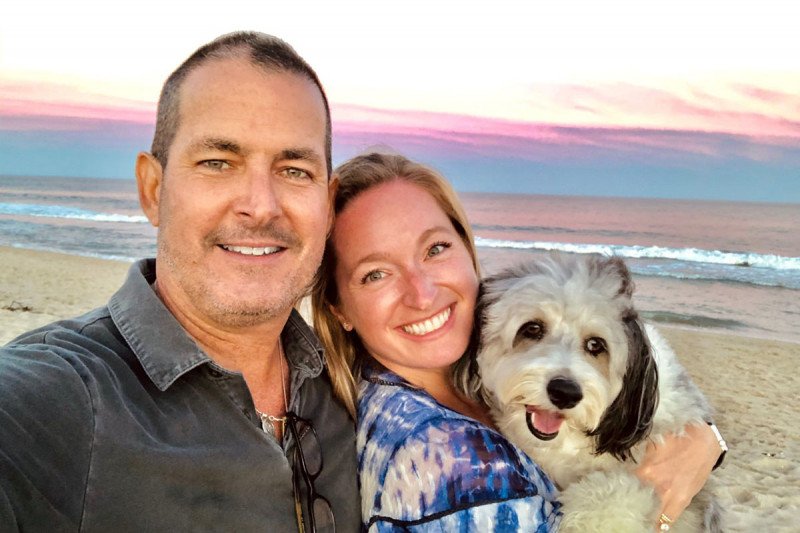
Cancer caregivers wear many hats: chauffer, secretary, chef, cheerleader, and more. It’s no wonder the position can feel overwhelming.
“It’s a role you never applied for and probably never trained for either,” says Diane Reidy-Lagunes, a medical oncologist at Memorial Sloan Kettering Cancer Center. Dr. Reidy-Lagunes hosts Cancer Straight Talk from MSK, a podcast for people with cancer and their loved ones.
In a recent episode, she and MSK social worker Jacob Maier explored some of the challenges and emotions that come with being a cancer caregiver. They also discussed finding meaning and moments of joy in the role. One of their main messages: To take good care of others, it’s important to take good care of yourself.
“There is a real power in owning the fact that you deserve care as well,” says Mr. Maier, who runs the MSK support group REACH (Resources, Education, Assistance, Counseling, Healing) for Caregivers.
Three caregivers for MSK patients also spoke about their experiences and shared the lessons they’ve learned along the way.
1. Take It Slow
Phil Strobino, whose wife, Cheryl, was diagnosed with a tumor in her pancreas, says the weight of responsibility kicked in as soon as he got the news.
“I knew immediately I had to step up even though fear set in,” he says. He knew his life was about to become a lot busier, and it caused him a lot of anxiety.

Focusing on taking the next step, instead of surmounting the whole staircase, can ease some of that worry about the future, Mr. Maier says.
2. Beware of ‘Toxic Positivity’
Sometimes, being overly positive can have a negative effect. Kendra Sweeney, whose husband, Charlie, has young onset colorectal cancer, says that there is pressure on caregivers to be cheery at all times. But that’s unrealistic, Mr. Maier says. Emotions aren’t anyone’s job to “fix,” and a Pollyanna attitude in the face of hardship can make people feel like their pain isn’t valid. He calls this “toxic positivity.”
“Sometimes the reality of life is that things aren’t good, things are hard, and it’s important for caregivers to feel that they have the space to just be with what is,” he says.
Being with what is also means acknowledging when you feel guilty, angry, or burnt out. All three are very common emotions caregivers face, Mr. Maier adds.
“It is understandable to be angry at the person you’re caregiving for,” he says, “because it’s put you in a scenario you never wanted to be in. Acknowledging it is so important. And [so is] being compassionate with yourself that this is a part of the journey.”
3. Do What You Can
That’s one of the messages that Paula realized while caring for her significant other.
“I learned that I didn’t have to do everything — that that’s not what being a caregiver is,” she says. “There’s a phenomenal team working for the person I love so much. And my job is not to take over. It’s not to become a substitute for the nurse.”
Even though Paula was the caregiver for her partner, neither forgot that theirs was a romantic relationship and always made time for that dimension. Mr. Maier noted how important it was to maintain intimacy, even if that shifts over the course of treatment.
“Cancer has a way of pervading and taking over everything,” he says. “Even if neither party wants a date night, it’s really about saying, ‘We need this space to not talk about cancer, to be partner to partner.’”
How MSK Can Help
MSK has many resources for caregivers. The Caregivers Clinic in MSK’s Counseling Center provides support from licensed professionals to anyone having difficulty in the role. There is also the REACH support group that Mr. Maier runs, which includes a virtual support group for caregivers. Integrative medicine, chaplain visits, and MSK’s Tobacco Treatment Program welcome caregivers as well.
For more candid insights and helpful advice about caring for someone with cancer, tune into this episode of Cancer Straight Talk from MSK.

